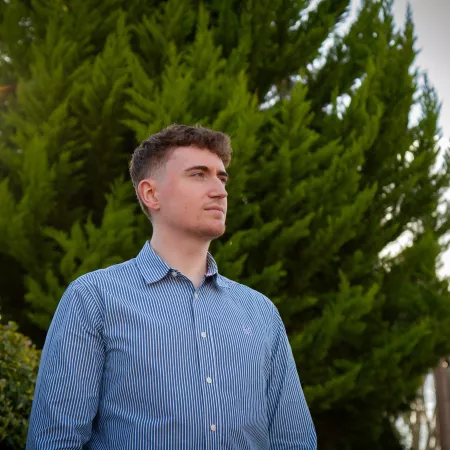
Tell us a bit about your job and your career so far?
I have worked as a journalist for the past two years at an international news agency. I work on the features desk, writing for predominantly the UK national papers, as well as for the UK's leading magazines such as Bella and Closer. I also source content for outlets such as the BBC and ITV, and even have had the pleasure of seeing my work being picked up by places such as the New York Post and Women's Day Australia.
What does a normal day look like for you?
My days can be incredibly varied depending on whether there is breaking news that I need to immediately respond to. If it's a breaking news story, I could be sent to the scene. A lot of my day is spent searching for content that could work for a national story -whether it be raising awareness of a condition or sharing a contributor's discovery of a quirky new invention!
What is the best bit about your job?
Working on the features desk means I get to work alongside charities, and help families who are needing financial aid or are looking for a new treatment. Speaking to people from all over the globe, from all walks of life, helping to tell their stories makes every day interesting and unique - and I get to meet someone new every day.
Was there anything you looked out for when searching for roles, because of your epilepsy?
Due to the competitive nature of my career, I needed to make sure that, whilst I felt I had to move from home, I was near enough to be able to be seen by a neurologist familiar with me, and also in a place where I wouldn't be totally alone. I also wanted to make sure that I had managers that were understanding and were willing to learn more about me and my condition.
How did you find looking for a role that you wanted, that would also be right for you?
Initially, due to the fact I'm a Northern girl, and a lot of jobs were down in London, I struggled as I didn't want to be too far from family. But as I've also worked with places like BBC in the past, I've found that they have schemes in places for those with long term health conditions and disabilities, and so that made my search easier and made me a lot more hopeful.
Were there any considerations you made, or your employer made, regarding your epilepsy?
I was fortunate in that, when I started, my employer was keen to have an action plan in place, and they also paid for a course for those working directly with me to go on, so they could understand my seizures and everything else that comes with epilepsy.
What have you told your colleagues about your epilepsy? What were their questions?
I felt it was best to be upfront and talk about my epilepsy with those who worked directly with me. I had a few of the usual questions that I needed to make sure people knew the answers to - can you swallow your tongue? Should I put something in your mouth? Did you bang your head? The training course really helped and made me feel a lot safer at work - it also explained other effects epilepsy has on me like stress and memory loss - so I felt a lot calmer.
What advice would you give to a young person with epilepsy who is beginning their journey into employment?
Be as open as you can - ignorance or lack of awareness can be dangerous, and if those around you know about your epilepsy, they're likely to do more research, learn that little bit more which will in turn make you safer. Don't be afraid to correct people, or tell them if their comments aren't appropriate - directing colleagues to charities or epilepsy awareness pages helps.
Have you ever had a seizure at work, and if so what was that experience like?
I've had what was believed to be a complex partial seizure at work, which at the time worried me, because it wasn't the stereotypical tonic clonic that many of my colleagues expected to see. Instead I got very confused and appeared very 'out of it' - that prompted the training sessions and in turn made me a lot safer at work. I was lucky in that I have kind colleagues who I'm good friends with, and so they knew I wasn't acting my usual self, and were determined to help and got me somewhere safe.




